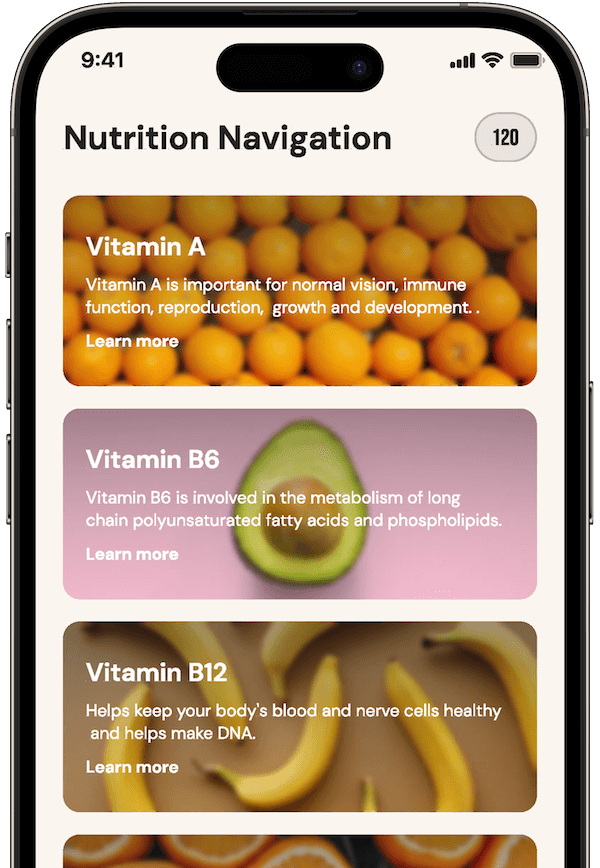Living with adenomyosis has given me a profound understanding of how debilitating fatigue can be. At my worst, I felt like I was constantly running on empty, no matter how much sleep I got or how well I ate.
It wasn’t until I started exploring the link between my condition and my energy levels that I began to find relief. As a certified nutrition coach from the Institute of Integrative Nutrition in New York, I’ve spent years helping others manage their health through diet and lifestyle changes.
Adenomyosis causes fatigue due to chronic pain, hormonal imbalances, and heavy menstrual bleeding, all of which can drain energy and disrupt sleep. Managing symptoms through nutrition, supplements, and lifestyle changes can help improve energy levels.
What is Adenomyosis and How Does It Affect the Body?

Adenomyosis occurs when the inner lining of the uterus breaks through the muscle wall of the uterus. This condition can lead to heavy menstrual bleeding, severe cramps, chronic pelvic pain, and bloating.
These symptoms can significantly impact daily life and overall well-being. Beyond the physical pain, adenomyosis also affects emotional and mental health. Chronic pain and heavy bleeding can lead to fatigue, stress, and anxiety, creating a cycle of worsening symptoms and increased fatigue.
What is Fatigue?

Fatigue is a persistent feeling of tiredness or exhaustion that is not relieved by rest. Unlike simply being tired, which typically improves with a good night’s sleep, fatigue can affect both physical and mental health, leading to decreased productivity and overall quality of life.
What is Chronic Fatigue?
Chronic fatigue is a more severe and long-lasting form of fatigue that persists for more than six months and does not improve with rest. It often interferes with daily activities and can be debilitating. Chronic fatigue is a common symptom in various chronic conditions, including adenomyosis, making it crucial to understand and address its underlying causes.
How Does Adenomyosis Cause Fatigue?
How Does Heavy Menstrual Bleeding Cause Fatigue?
Heavy menstrual bleeding is a common symptom of adenomyosis. This excessive blood loss can lead to anaemia, a condition characterised by a deficiency of red blood cells. Red blood cells are crucial for transporting oxygen throughout the body. When their levels are low, your tissues and organs don’t get enough oxygen, leading to persistent feelings of tiredness and weakness. This type of fatigue is particularly challenging because it doesn’t improve with rest alone.
If you are experiencing the symptoms of chronic fatigue, it may be time to speak to your GP about getting a blood test and potentially adding iron supplements into your routine.
There is a wide variety of iron supplements available, I personally use a specific brand provided by my naturopath that negates the side effect of blocked bowels that can be common with other brands.
When my iron really drops, I personally opt for the option of an iron infusion. Be sure to seek advice from your GP and health specialists to create a plan of action that is right for you.
Can Chronic Pain Lead to Fatigue?
The chronic pain associated with adenomyosis can significantly disrupt sleep. Pain can make it difficult to fall asleep or wake you up frequently during the night, preventing you from reaching deep, restorative sleep stages.
Over time, this poor sleep quality accumulates, leading to chronic fatigue. The body’s continuous effort to manage pain also depletes energy reserves, contributing further to a state of constant exhaustion.
How Do Hormonal Imbalances Contribute to Fatigue?
Adenomyosis often involves hormonal imbalances, particularly with oestrogen and progesterone. These hormones are essential for regulating sleep and energy levels. Imbalances can lead to disrupted sleep patterns, making it harder to get a good night’s rest.
Additionally, fluctuating hormone levels can directly affect how energised or fatigued you feel throughout the day. This hormonal disruption is a key factor in the persistent fatigue experienced by those with adenomyosis.
What is the Link Between Adenomyosis and Fatigue?
The combination of chronic pain, heavy menstrual bleeding, and hormonal imbalances creates a perfect storm for fatigue in adenomyosis patients. This constant strain on the body depletes energy reserves, making it difficult to stay energised throughout the day.
The multifaceted nature of adenomyosis means that managing fatigue requires addressing all these contributing factors simultaneously through comprehensive lifestyle and dietary changes.
Does Adenomyosis Cause Chronic Fatigue?

Chronic fatigue is more intense and persistent than regular fatigue, often interfering with daily activities and overall quality of life. For those with adenomyosis, chronic fatigue is typically driven by ongoing, severe pain, prolonged heavy menstrual bleeding, and the resulting anaemia.
Hormonal imbalances and the body’s inflammatory response further contribute to this exhaustion. Unlike occasional tiredness, chronic fatigue does not improve with rest and requires a comprehensive approach to management, including dietary adjustments, supplements, and lifestyle changes to mitigate its impact.
Ways to Manage Adenomyosis-Related Fatigue
What Dietary Changes Can Help?

Adopting an anti-inflammatory diet can help manage adenomyosis symptoms and reduce fatigue. Focus on foods rich in magnesium, omega-3 fatty acids, and antioxidants. Leafy greens, nuts and seeds, fatty fish, and whole grains are excellent choices.
Avoid processed foods and sugars, which can exacerbate inflammation and fatigue. For a more in-depth look at what foods to avoid, check out my latest article: What Foods Trigger Adenomyosis?.
Are There Specific Exercises That Can Alleviate Fatigue?
Regular, moderate exercise can help reduce fatigue by improving circulation, boosting mood, and increasing energy levels. Activities like walking, yoga, and swimming are gentle on the body and can be particularly beneficial for those with adenomyosis.
How Important is Sleep for Managing Fatigue?

Quality sleep is crucial for managing fatigue related to adenomyosis. Establish a regular sleep schedule, create a restful environment, and practise good sleep hygiene. Avoiding screens before bed, leaving your phone outside of the bedroom and keeping the bedroom cool and dark can help improve sleep quality.
How Can Stress Reduction Techniques Help?
Stress can exacerbate fatigue and worsen adenomyosis symptoms. Incorporate stress reduction techniques such as meditation, deep breathing exercises, and mindfulness into your daily routine. These practices can help calm the mind and reduce overall stress levels.
How Can the Unprocessed App Help?
The Unprocessed app can be a valuable tool in managing your adenomyosis-related fatigue. By helping you track your diet and monitor how different foods affect your symptoms, the app allows you to make informed dietary choices that can reduce inflammation and improve energy levels.

It also provides personalised recommendations for nutrient intake, ensuring you get enough magnesium, omega-3 fatty acids, and other essential nutrients. Additionally, the app can help you identify patterns between your diet and your fatigue levels, allowing you to adjust your lifestyle and dietary habits accordingly. This comprehensive approach can significantly improve your quality of life and help you manage the fatigue associated with adenomyosis more effectively. Unprocessed App is coming soon, so sign up to the waitlist today.
FAQs About Adenomyosis and Fatigue
Is Fatigue a Common Symptom of Adenomyosis?
Yes, fatigue is a common symptom due to chronic pain, hormonal imbalances, and heavy menstrual bleeding.
Are There Natural Remedies for Managing Fatigue?
Yes, dietary changes, supplements, and stress management techniques can help manage fatigue naturally.
How Long Does It Take to See Improvement in Fatigue with Lifestyle Changes?
Improvement can vary, but many people see changes within a few weeks to a few months.
Can Fatigue Indicate Other Underlying Health Issues?
Yes, fatigue can also be a sign of other health issues, so it’s important to consult with a healthcare provider.
Final Thoughts on Managing Fatigue with Adenomyosis
Managing fatigue related to adenomyosis requires a holistic approach. Incorporating dietary changes, regular exercise, quality sleep, and stress reduction techniques can significantly improve energy levels and overall well-being.
As someone who has experienced the challenges of adenomyosis, I highly recommend using tools like the Unprocessed app to track your nutrient intake and manage your health more effectively. Join our waitlist today for early access to the Unprocessed App.



